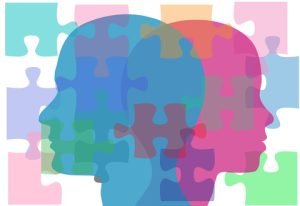Anxiety & Depression
One of the popular theories of depression is that it is caused by low brain levels of neurotransmitters such as serotonin and norepinephrine which are associated with feelings of happiness. However, depression may have causes that we don’t yet understand. This may be the reason why antidepressants don’t work for everyone. Those who experience a form of depression known as treatment-resistant depression (or refractory depression) find little or no relief through standard medications. Comorbid disorders are often undetected in the treatment of depression and left untreated can interfere with treatment.

Anxiety is one of the most common disorders associated with depression and they often have similar symptoms. it is suggested that 14.4% of the Australian population are affected by an anxiety disorder ina 12 month period. many of the few who seek treatment come away dissapointed…and still anxious. For some substance use or misuse is a form of self-medicating in an attempt to manage symptoms that can result in the worsening of both depression and anxiety. It is also important to rule out other causes such as trauma, grief, environmental factors, medical illness, toxins, stress, poor quality sleep, or gut issues.
Likewise anxiety is often accompanied by other conditions or symptoms such as depression, stress, insomnia, OCD to name a few. On occasion anxiety can be a side effect of medications or other substances, or it can be a by-product of another underlying illness or condition. The impact of having an anxiety disorder cannot be underestimated as it can case significant limitations in education and career progression, family life, relationships and ones own sense of joy or satisfaction in life.
Research indicates that brainwave dysregulation is a contributing factor in depression, anxiety, and other associated mental health disorders. For this reason, we examine a QEEG so we can identify the cause of the presenting symptoms. Anxiety for example is most often identified as fast overactive beta waves, and the location of these fast waves helps us understand its nature or profile and subsequent therapy.
Neurotherapy has been effective in reducing the symptoms of depression for many who were considered treatment resistant.
Neurofeedback is one of the few alternatives to pharmaceutical approaches to the management of mental health issues such as depression, anxiety, mood disorders, and OCD.
With three types of neurofeedback, neuromodulation and other complimentary resources available we can certainly customize a solution for you.